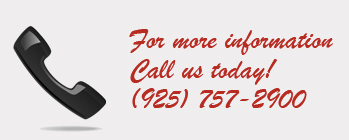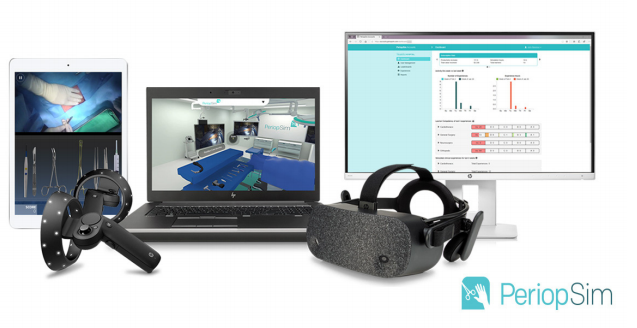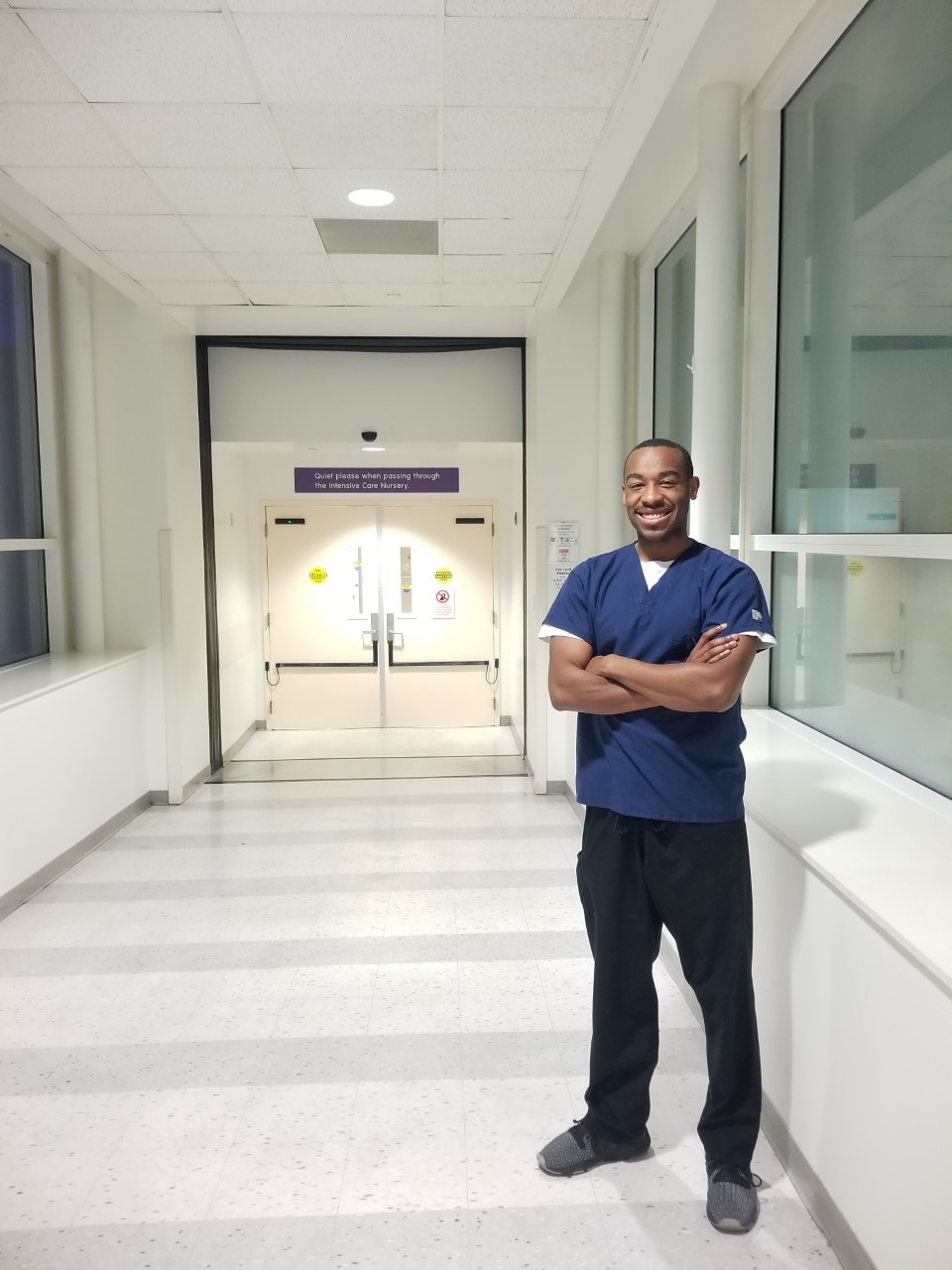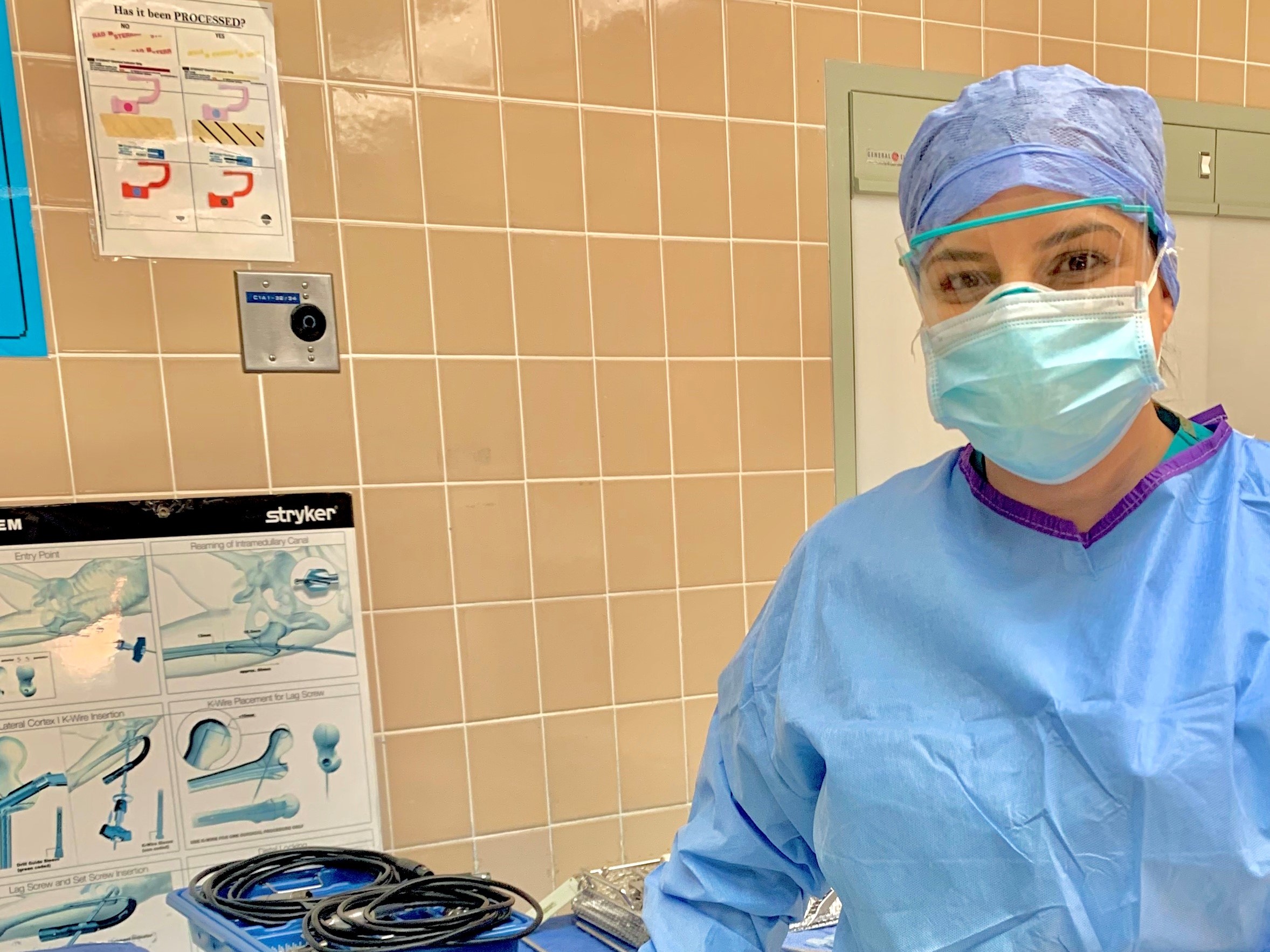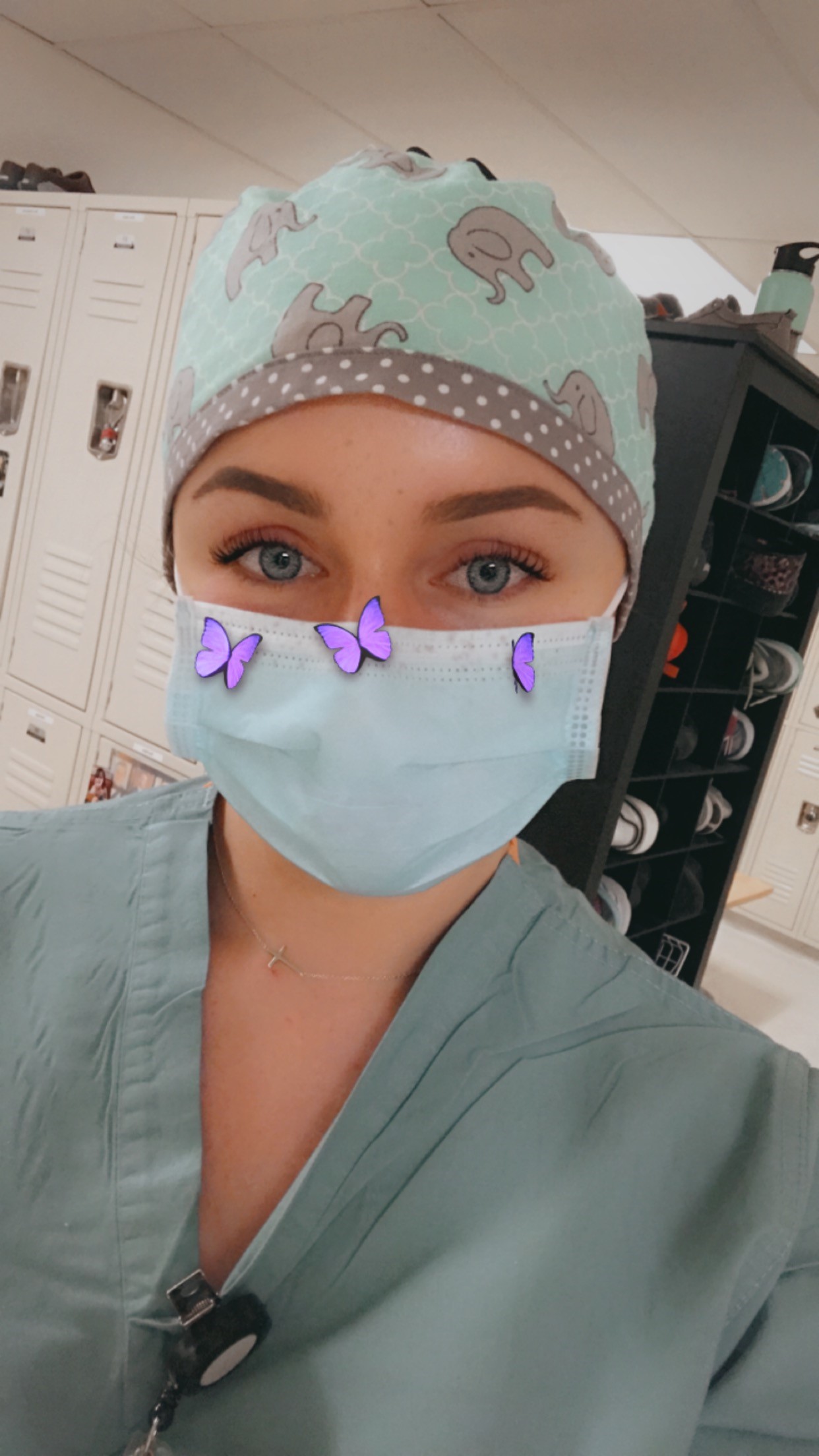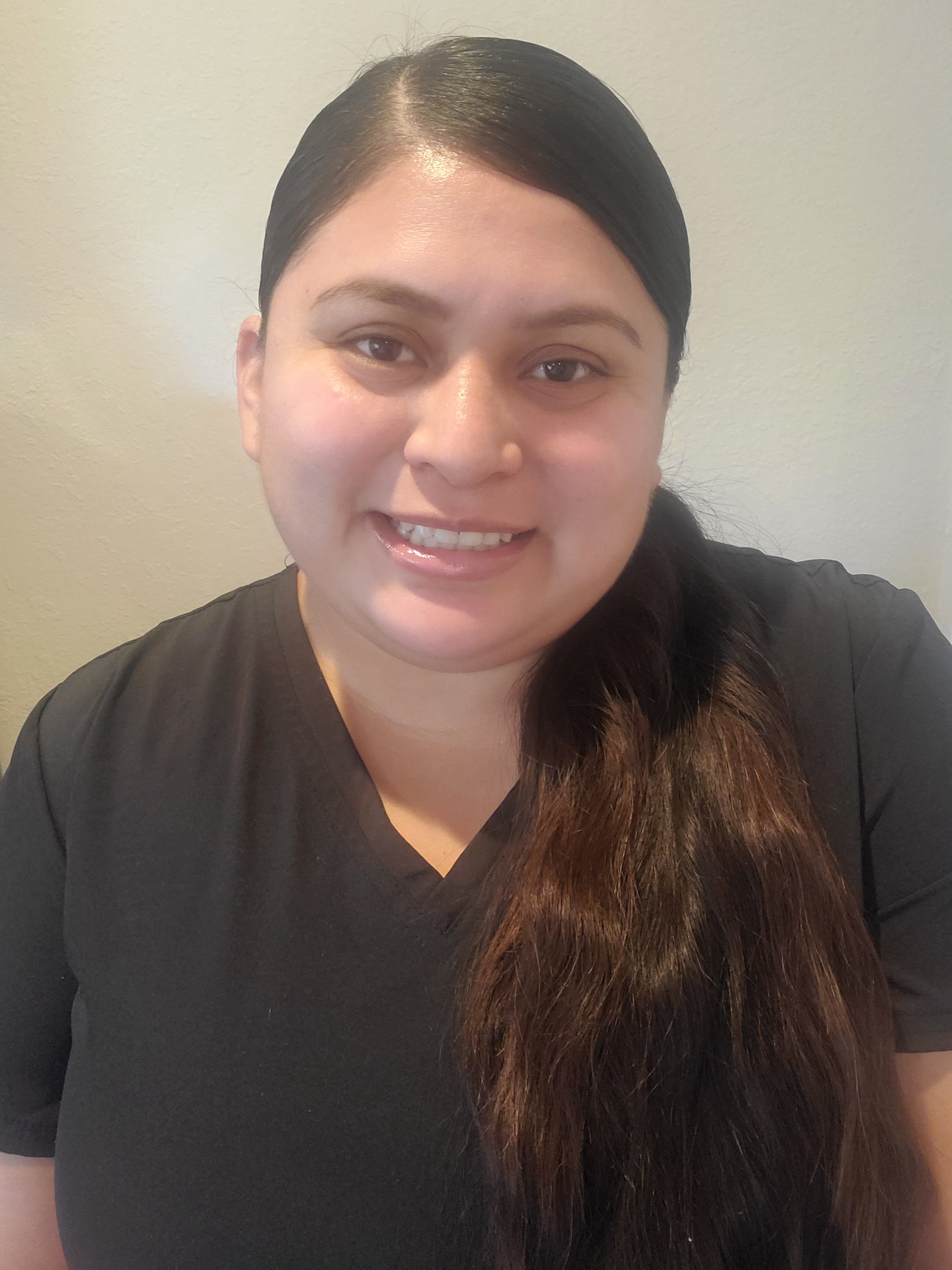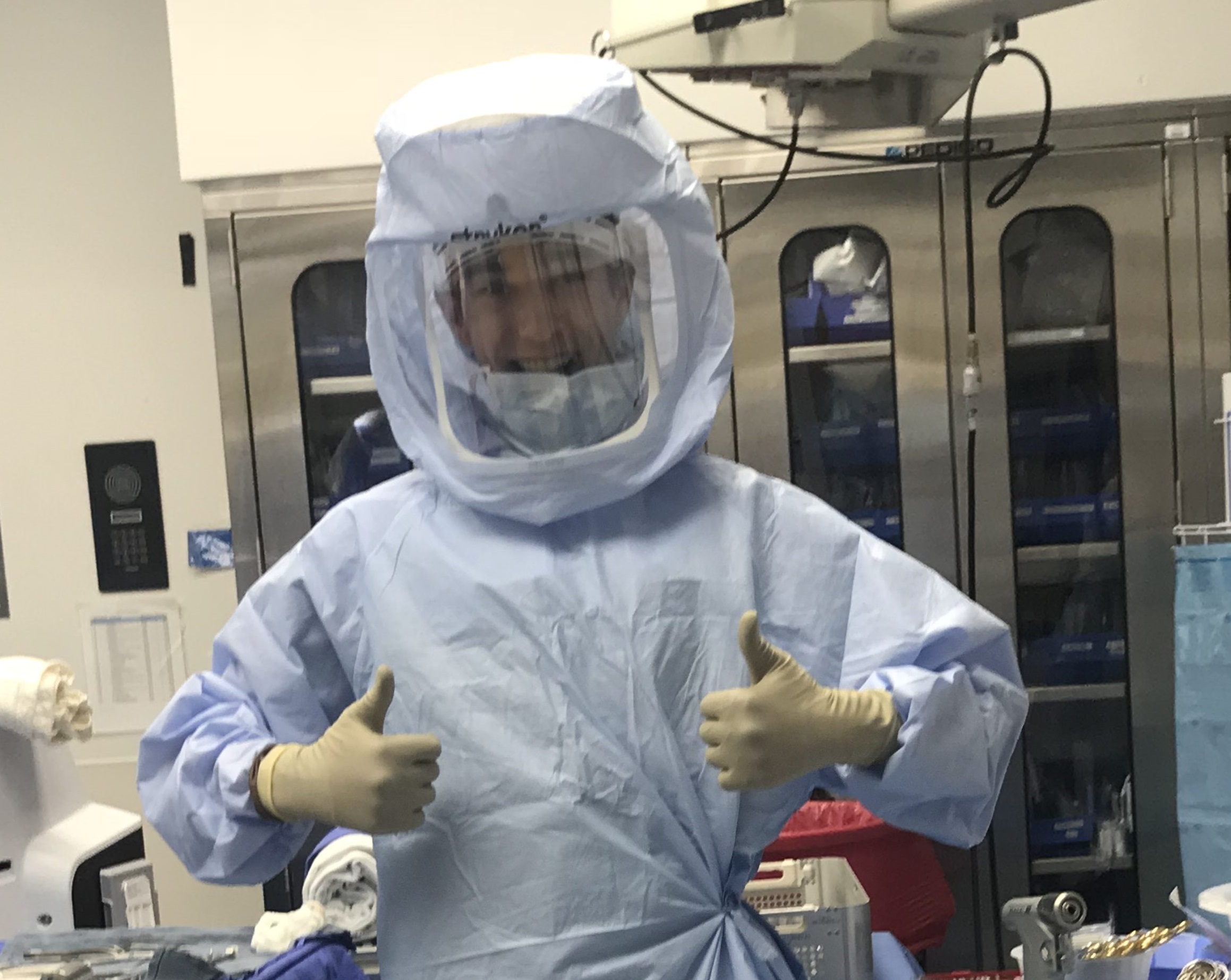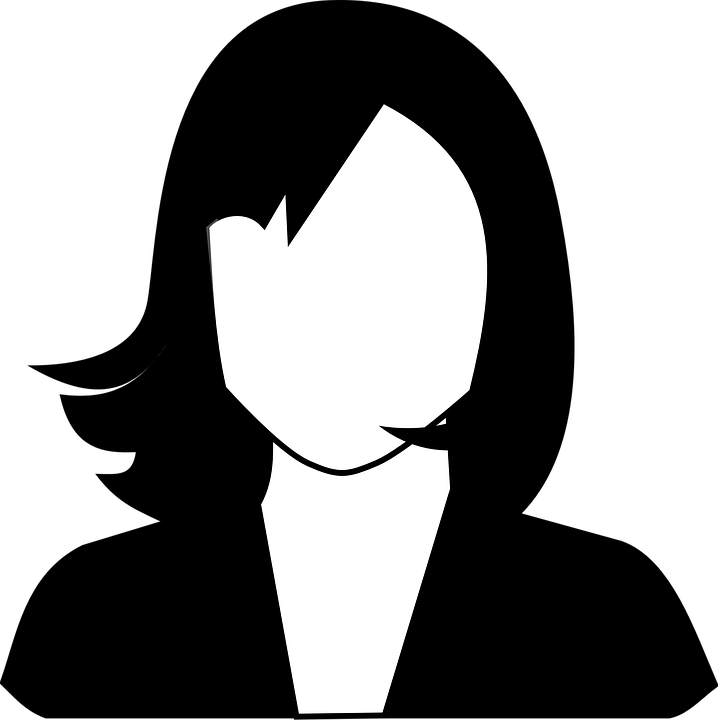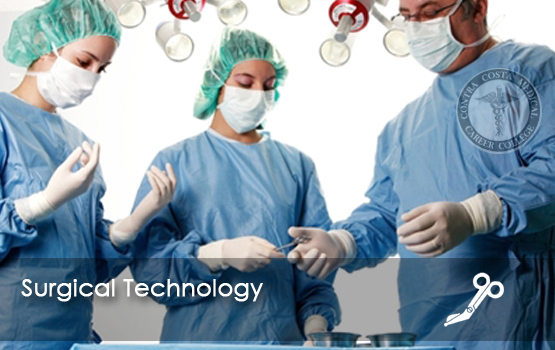
The Contra Costa Medical Career College AAS in Surgical Technology Program is committed to providing an environment that facilitates student success in acquiring the theory and technical skills pertinent to a professional surgical technologist. Upon successful completion of the AAS Surgical Technology program, students will receive an Associate of Applied Science in Surgical Technology.
This 1648 hour program which prepares students to function within the sterile environment of the operating room assisting physicians during surgical procedures while earning an Associate degree. The surgical technology field requires physical stamina, manual dexterity, the ability to maintain good working relationships with patience and tact, and the ability to work well in high-stress situations. Intensive study program includes anatomy, physiology, medical terminology, microbiology, pharmacology, principles of aseptic and universal precaution techniques, surgical procedures, patient care and clinical experience in area hospitals and Surgery Centers. Employment opportunities include acute care hospitals, outpatient surgery centers and physician’s offices. Surgical Technologists are currently in demand at hospitals, outpatient surgery centers, doctors’ offices, and registries. As the population grows, the need for surgical procedures will increase dramatically along with the demand for Surgical Technology positions available. Many Surgical Technologists continue their education to become Registered Nurses or to pursue other Medical Career opportunities.The curriculum will provide you with both theoretical and clinical skills. After completion of classroom training, you will be placed in a clinical environment for on-the-job training. This will provide you with the opportunity to enhance your skills and will prepare you to enter into the exciting field of Surgical Technology.
What do Surgical Technologists do?
- Assist in surgical procedures (operations)
- Help prepare the operating room
- Setting up surgical instruments, equipment, sterile drapes and sterile solutions
- Maintain a sterile field
- Assist with patient preparation
- Transport patients to the operating room
- During surgery, technologist pass instruments and other sterile supplies to Surgeons and Surgeon Assistants
- Operate sterilizers, lights, and suction machines
- Help operate diagnostic equipment
GENERAL INFORMATION
The surgical technologist is a member of the surgical team, generally working in hospital operating rooms, acting as the primary scrub person who handles the sterile instruments, supplies, and equipment necessary for operative procedures. The surgical technologist works with the surgeon, anesthesiologist, certified registered nurse anesthetist, registered nurse, and licensed practical nurse.
The Contra Costa Medical Career College Surgical Technology Program is designed to cover both the academic and clinical skills necessary to perform as a surgical technologist. By the first class meeting, all students must be at least 18 years of age and be graduates of an accredited U.S. high school or have passed the English-language version of the GED®. Associate’s (or higher level) degrees from a U.S. institution are also acceptable. Foreign diplomas or degrees are not accepted, unless they are translated by an accredited translation organization. Transcripts must be deemed equivalent to US education.
PHYSICAL GUIDELINES FOR STUDENTS:
- STRENGTH: Perform physical activities requiring ability to push/pull objects more than 50 pounds and to transfer objects of more than 100 pounds.
- MANUAL DEXTERITY: Perform motor skills such as standing, walking, writing, handshaking; manipulative skills such as writing, typing; calibration of equipment; and handling instruments.
- COORDINATION: Perform body coordination such as walking, filing, retrieving equipment, eye-hand coordination such as keyboard skills; tasks which require arm-hand steadiness such as taking blood pressures, calibration of tools and equipment, and handling equipment.
- MOBILITY: Perform mobility skills such as walking, standing, and occasionally prolonged standing or sitting (up to twelve hours) in uncomfortable positions.
- VISUAL ABILITY: See objects far away and to discriminate colors and to see objects closely as in reading faces, dials, monitors, and medication labels.
- HEARING: Hear normal sounds with background noise and distinguish sounds.
- CONCENTRATION: Concentrate on details with moderate amount of interruptions.
- ATTENTION SPAN: Attend to task/functions for periods up to 60 minutes in length and exceeding 60 minutes in length.
- CONCEPTUALIZATION: Understand and relate to specific ideas, concepts, and theories generated and simultaneously discussed.
- MEMORY: Remember task/assignments given to self and others over both short and long periods of time.
- CRITICAL THINKING: Possess critical thinking ability sufficient for clinical judgment. Apply theoretical concepts to clinical settings.
- INTERPERSONAL: Use interpersonal skills sufficient to interact with individuals, families, and groups from a variety of social, emotional, cultural, and intellectual backgrounds.
- COMMUNICATION: Communicate effectively for interaction with others in verbal, non-verbal and written form. Explain treatment procedures and initiate health teaching.
- SUBSTANCE ABUSE: Evidence of no current alcohol or drug abuse, or felony convictions related to alcohol or drug abuse.
- SEQUENCING: Remember and execute tasks and skills in a predetermined arrangement of succession, building upon consecutive steps.
ENVIRONMENTAL CONDITIONS
The surgical technologist may be exposed to a variety of substances within the work environment. You can expect to be exposed to blood, body tissues or fluids, electrical hazards, hazardous waste materials, radiation, chemicals, and loud or unpleasant noises.

